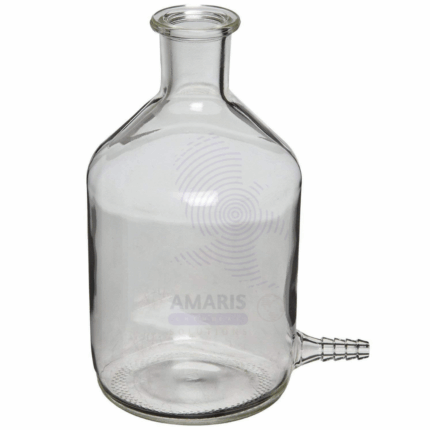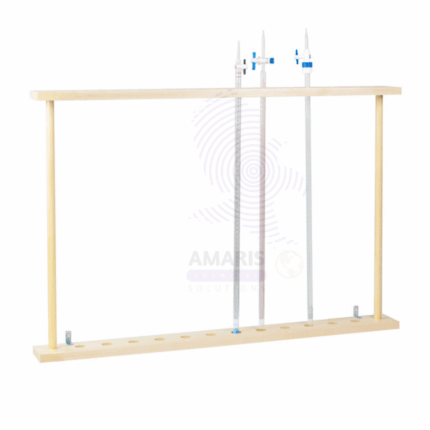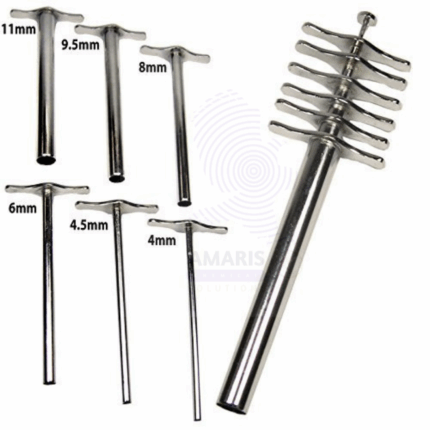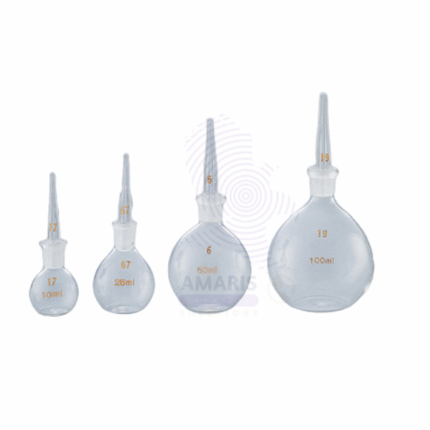“Amber Bottles Polystop” has been added to your cart. View cart
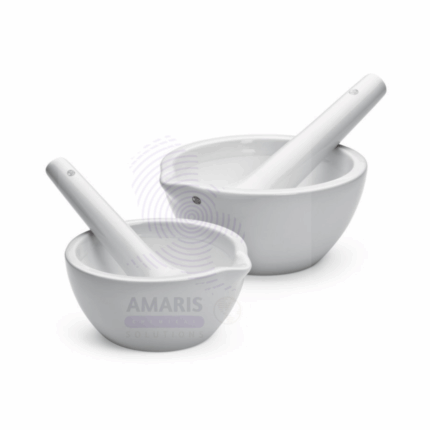
Mortar and pestle
$ 11.78 Original price was: $ 11.78.$ 11.62Current price is: $ 11.62.
Spatula plastic
$ 2.50 Original price was: $ 2.50.$ 2.32Current price is: $ 2.32.
Whatsapp Order
Product Description
Plastic Spatulas are versatile laboratory tools designed for safely handling, transferring, and mixing small quantities of powders, granules, and liquids. Made from chemically resistant, durable plastic materials, these spatulas resist corrosion from most laboratory reagents and are lightweight for easy handling. They come in various sizes and shapes, often featuring flat or slightly curved blades to facilitate scooping and scraping. Plastic spatulas are essential in chemical, pharmaceutical, biological, and research laboratories for precise sample manipulation and contamination-free operations.
Description
Table of Contents
Toggle
Spatula plastic
Primary Uses
- Laboratory Applications
- Transfer and measure small amounts of powdered chemicals or reagents.
- Scrape and collect residues from containers or surfaces.
- Mix and homogenize small samples during preparation or analysis.
- Handle biological samples or pharmaceutical powders with minimal contamination risk.
- Facilitate weighing and sample preparation in analytical and research settings.
Secondary Uses
- Used in educational laboratories for safe and convenient chemical handling.
- Employed in food science labs for sample handling.
- Applicable in cosmetic and personal care labs for small-batch mixing and formulation.
KEY PRODUCT FEATURES
1.Basic Identification Attributes
- Material: Chemically resistant plastic (e.g., polypropylene, polyethylene).
- Design: Flat or curved blade with a handle for easy grip.
- Sizes: Available in various lengths and blade widths depending on application.
2.Physical & Chemical Properties
- Chemical Resistance: Resistant to acids, bases, solvents, and aqueous solutions.
- Durability: Lightweight but sturdy for repeated use.
- Non-reactive: Does not contaminate or react with most chemicals handled.
3.Safety & Hazard Attributes
- Non-toxic and safe to handle under normal laboratory conditions.
- Smooth edges reduce risk of cuts or injuries.
4.Storage & Handling Attributes
- Store in clean, dry environments to maintain cleanliness.
- Clean thoroughly after use to avoid cross-contamination.
5.Regulatory & Compliance Attributes
- Manufactured according to laboratory quality and safety standards.
- Suitable for GLP and GMP compliant laboratories.
6.Environmental & Health Impact
- Plastic components may not be biodegradable; recycling encouraged where possible.
- Low health risk with proper handling.
SAFETY HANDLING PRECAUTIONS
Safety Handling Precautions
- Use PPE such as gloves to avoid contamination.
- Avoid excessive force to prevent breakage or deformation.
First Aid Measures
- For minor injuries, clean affected area and seek medical attention if needed.
Firefighting Measures
- Plastic material is combustible; use appropriate extinguishing methods (e.g., CO₂, dry chemical).
Related products
Aspirator Bottle Glass
Aspirator Bottle Glass is a durable, high-quality glass container designed specifically for use in laboratory suction and aspiration systems. These bottles are engineered to safely collect and contain liquids and aerosols during filtration, vacuum, or aspiration procedures. Made from chemically resistant glass, Aspirator Bottles offer excellent clarity and durability while withstanding the rigors of laboratory use. They typically feature secure screw caps or stopper closures that ensure leak-proof performance and easy handling. Widely used in medical, research, and industrial laboratories, Aspirator Bottle Glass is essential for safe fluid management in various applications.
Burette stand for drying
The Burette Stand for Drying is a laboratory accessory designed to securely hold burettes in an upright position during drying and storage. Made from durable, corrosion-resistant materials such as stainless steel or coated metal, the stand ensures stability and prevents damage or contamination of delicate glassware. Its design facilitates proper air circulation, promoting efficient drying and maintaining the cleanliness of burettes between uses.
Condenser liebig
The Liebig Condenser is a straight glass tube surrounded by a water jacket used to cool and condense vapors back into liquids during distillation processes. It is a fundamental laboratory apparatus designed for efficient heat exchange, allowing vapors to lose heat and convert back to liquid form. Constructed from durable borosilicate glass, the Liebig condenser withstands thermal stress and chemical corrosion, making it suitable for repeated use in various laboratory and industrial distillation and reflux applications.
Cork borer set
The Cork Borer Set is a precision instrument set used in laboratories for cutting uniform cylindrical holes through corks, rubber stoppers, and soft polymers. Typically made of durable stainless steel, the set includes multiple hollow borers of varying diameters with sharpened edges, along with a cleaning rod or handle. It is essential for creating accurate openings to insert glass tubing or thermometers into stoppers for experimental setups involving sealed vessels or distillation systems.
cork borer set sharpener
The Cork Borer Set Sharpener is a specialized tool designed for honing and maintaining the cutting edges of cork borers. Essential for extending the life and performance of laboratory cork borers, this sharpener typically features a conical or tapered grinding surface made of hardened steel or fine abrasive material. It ensures precision cutting by restoring sharpness, which is critical for clean, accurate boring through rubber stoppers, corks, and similar materials. Durable and easy to use, it is a vital accessory in laboratory maintenance kits.
Cork to fit boiling tube cork
Cork to fit boiling tube cork is a precision-cut natural or synthetic cork designed to seal boiling tubes securely in laboratory settings. These corks provide an airtight seal while resisting mild heat and chemical exposure typically encountered in general lab procedures. They help prevent contamination, evaporation, or spillage of contents during storage, gentle heating, or experimental handling. Available in various diameters, these corks are essential for maintaining experimental integrity in both research and industrial laboratories.
Density Bottle
The Density Bottle is a precision glassware device used for determining the density of liquids by measuring a known volume and mass. Typically made from high-quality borosilicate glass, the bottle features a tight-fitting stopper with a capillary hole to allow excess liquid to escape, ensuring volume accuracy. It is commonly used in laboratory settings for experiments in physical chemistry, materials science, and industrial quality control processes. The device provides a reliable method for comparing the density of various substances with high repeatability.
Porcelain Boat
Porcelain Boat is a specialized ceramic container made from high-quality porcelain material. It is designed for laboratory, pharmaceutical, and culinary applications requiring heat resistance, chemical inertness, and easy cleaning. The porcelain boat's smooth surface and durable construction make it ideal for use in processes like ashing, drying, and sample handling.


 Preservatives(food)
Preservatives(food) Flavor Enhancers
Flavor Enhancers Acidulants
Acidulants Sweeteners
Sweeteners Antioxidants
Antioxidants Colorants(food)
Colorants(food) Nutraceutical Ingredients (food)
Nutraceutical Ingredients (food) Nutrient Supplements
Nutrient Supplements Emulsifiers
Emulsifiers
 Collectors
Collectors Dust Suppressants
Dust Suppressants Explosives and Blasting Agents
Explosives and Blasting Agents Flocculants and Coagulants
Flocculants and Coagulants Frothers
Frothers Leaching Agents
Leaching Agents pH Modifiers
pH Modifiers Precious Metal Extraction Agents
Precious Metal Extraction Agents
 Antioxidants(plastic)
Antioxidants(plastic) Colorants (Pigments, Dyes)
Colorants (Pigments, Dyes) Fillers and Reinforcements
Fillers and Reinforcements Flame Retardants
Flame Retardants Monomers
Monomers Plasticizers
Plasticizers Polymerization Initiators
Polymerization Initiators Stabilizers (UV, Heat)
Stabilizers (UV, Heat)
 Antifoaming Agents
Antifoaming Agents Chelating Agents
Chelating Agents Coagulants and Flocculants
Coagulants and Flocculants Corrosion Inhibitors
Corrosion Inhibitors Disinfectants and Biocides
Disinfectants and Biocides Oxidizing Agents
Oxidizing Agents pH Adjusters
pH Adjusters Scale Inhibitors( water)
Scale Inhibitors( water)
 Antioxidants(cosmetic)
Antioxidants(cosmetic) Emollients
Emollients Fragrances and Essential Oils
Fragrances and Essential Oils Humectants
Humectants Preservatives
Preservatives Surfactants(cosmetic)
Surfactants(cosmetic) Thickeners
Thickeners UV Filters
UV Filters
 Fertilizers
Fertilizers Soil Conditioners
Soil Conditioners Plant Growth Regulators
Plant Growth Regulators Animal Feed Additives
Animal Feed Additives Biostimulants
Biostimulants Pesticides (Herbicides, Insecticides, Fungicides)
Pesticides (Herbicides, Insecticides, Fungicides)
 Active Pharmaceutical Ingredients (APIs)
Active Pharmaceutical Ingredients (APIs) Excipients
Excipients Solvents(pharmaceutical)
Solvents(pharmaceutical) Antibiotics
Antibiotics Antiseptics and Disinfectants
Antiseptics and Disinfectants Vaccine Adjuvants
Vaccine Adjuvants Nutraceutical Ingredients (pharmaceutical)
Nutraceutical Ingredients (pharmaceutical) Analgesics & Antipyretics
Analgesics & Antipyretics
 Analytical Reagents
Analytical Reagents Solvents(lab)
Solvents(lab) Chromatography Chemicals
Chromatography Chemicals Spectroscopy Reagents
Spectroscopy Reagents microbiology-and-cell-culture-reagents
microbiology-and-cell-culture-reagents Molecular Biology Reagents
Molecular Biology Reagents Biochemical Reagents
Biochemical Reagents Inorganic and Organic Standards
Inorganic and Organic Standards Laboratory Safety Chemicals
Laboratory Safety Chemicals Specialty Laboratory Chemicals(Special Laboratory Equipment)
Specialty Laboratory Chemicals(Special Laboratory Equipment)
 Demulsifiers
Demulsifiers Hydraulic Fracturing Fluids
Hydraulic Fracturing Fluids Scale Inhibitors(oil)
Scale Inhibitors(oil) Surfactants(oil)
Surfactants(oil) Drilling Fluids
Drilling Fluids
 Dyes and Pigments
Dyes and Pigments Bleaching Agents
Bleaching Agents Softening Agents
Softening Agents Finishing Agents
Finishing Agents Antistatic Agents
Antistatic Agents
 Admixtures
Admixtures Waterproofing Agents
Waterproofing Agents Sealants and Adhesives
Sealants and Adhesives Curing Compounds
Curing Compounds Concrete Repair Chemicals
Concrete Repair Chemicals Anti-Corrosion Coatings
Anti-Corrosion Coatings
 Surfactants(cleaning)
Surfactants(cleaning) Builders
Builders Enzymes
Enzymes Solvents (Cleaning)
Solvents (Cleaning) Fragrances
Fragrances
 Electronic Chemicals
Electronic Chemicals Catalysts
Catalysts Lubricants
Lubricants Photographic Chemicals
Photographic Chemicals Refrigerants
Refrigerants Automotive chemicals
Automotive chemicals Pyrotechnic Chemicals
Pyrotechnic Chemicals
 Biodegradable Surfactants
Biodegradable Surfactants Bio-based Solvents
Bio-based Solvents Renewable Polymers
Renewable Polymers Carbon Capture Chemicals
Carbon Capture Chemicals Wastewater Treatment Chemicals
Wastewater Treatment Chemicals
 Pigments
Pigments Solvents(paint)
Solvents(paint) Specialty Coatings
Specialty Coatings Binders/Resins
Binders/Resins Additives
Additives Driers
Driers Anti-Corrosion Agents
Anti-Corrosion Agents Functional Coatings
Functional Coatings Application-Specific Coatings
Application-Specific Coatings
 Fresh Herbs
Fresh Herbs Ground Spices
Ground Spices Whole Spices
Whole Spices Spice Blends
Spice Blends Dried Herbs
Dried Herbs
 Leavening Agents
Leavening Agents Dough Conditioners
Dough Conditioners Flour Treatments
Flour Treatments Fat Replacers
Fat Replacers Decoratives
Decoratives Preservatives(baking)
Preservatives(baking)
 Plasticizers & Softeners
Plasticizers & Softeners Reinforcing Agents
Reinforcing Agents Adhesion Promoters
Adhesion Promoters Vulcanizing Agents
Vulcanizing Agents Antidegradants
Antidegradants Blowing Agents
Blowing Agents Fillers & Extenders
Fillers & Extenders Accelerators & Retarders
Accelerators & Retarders


